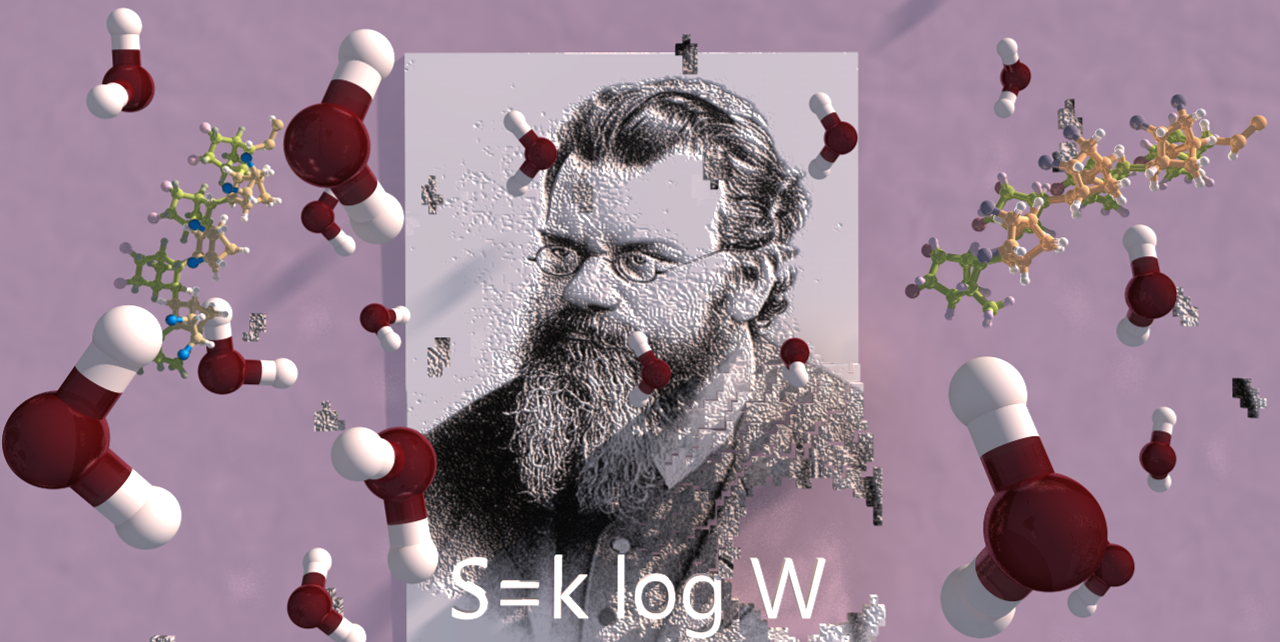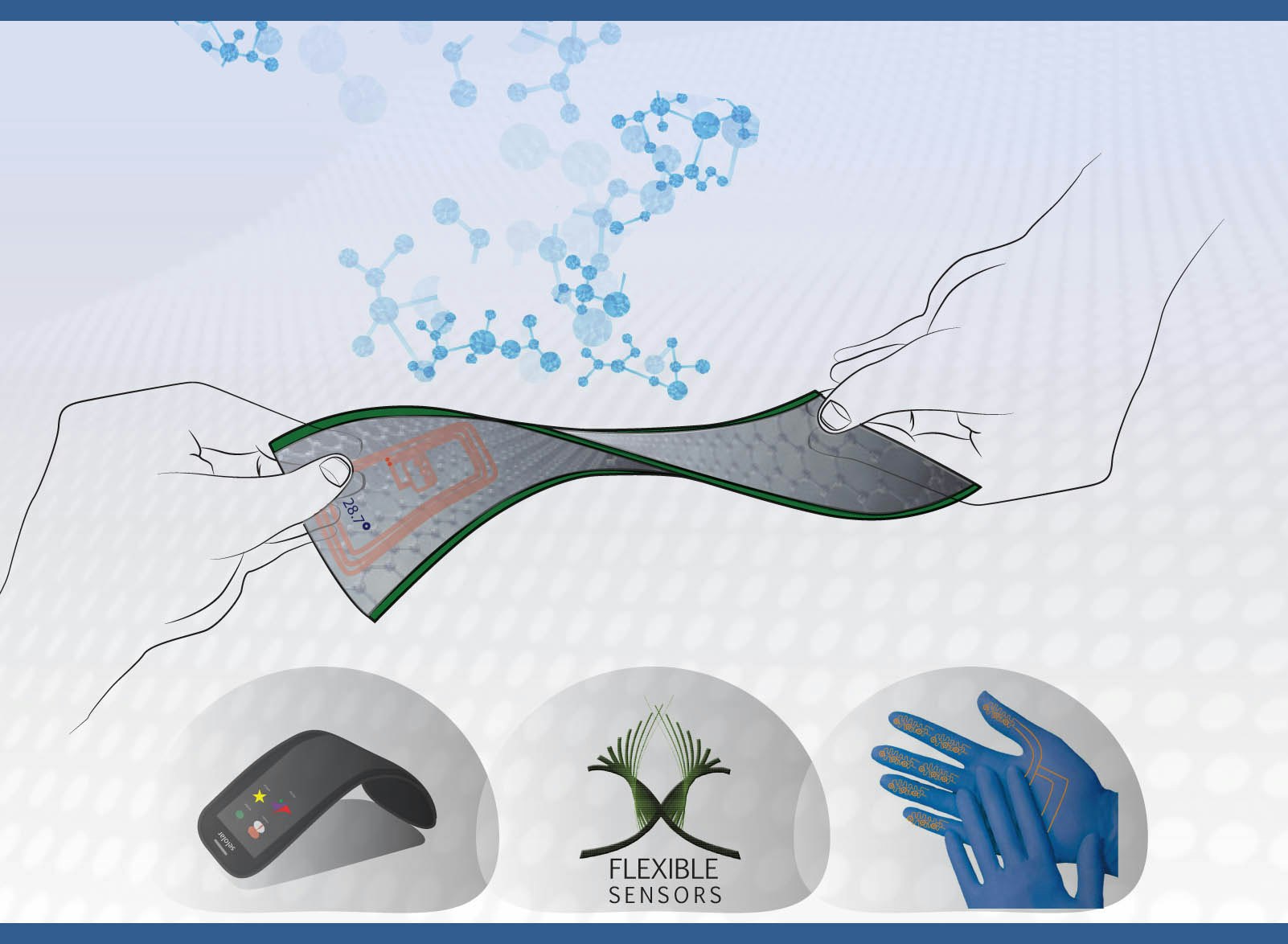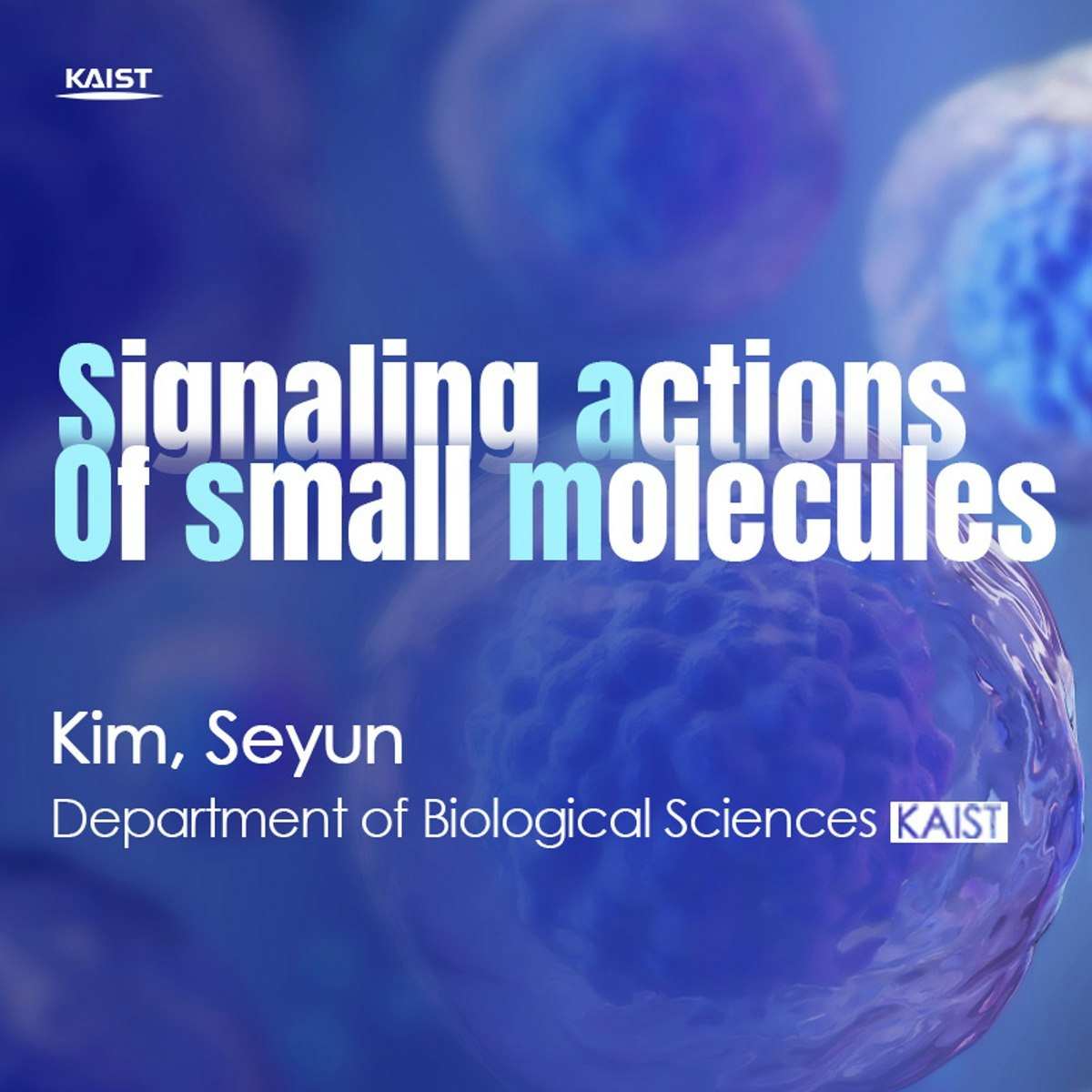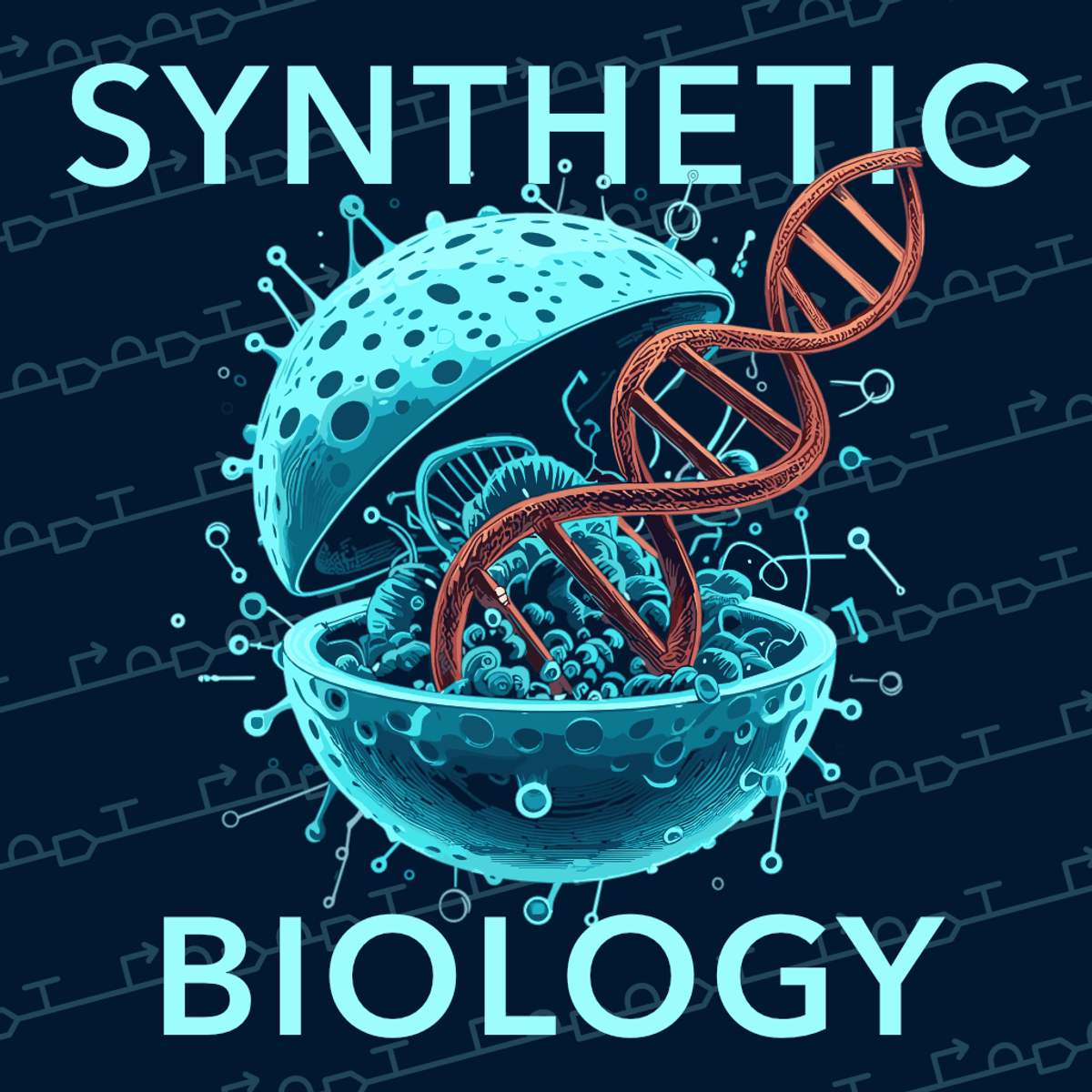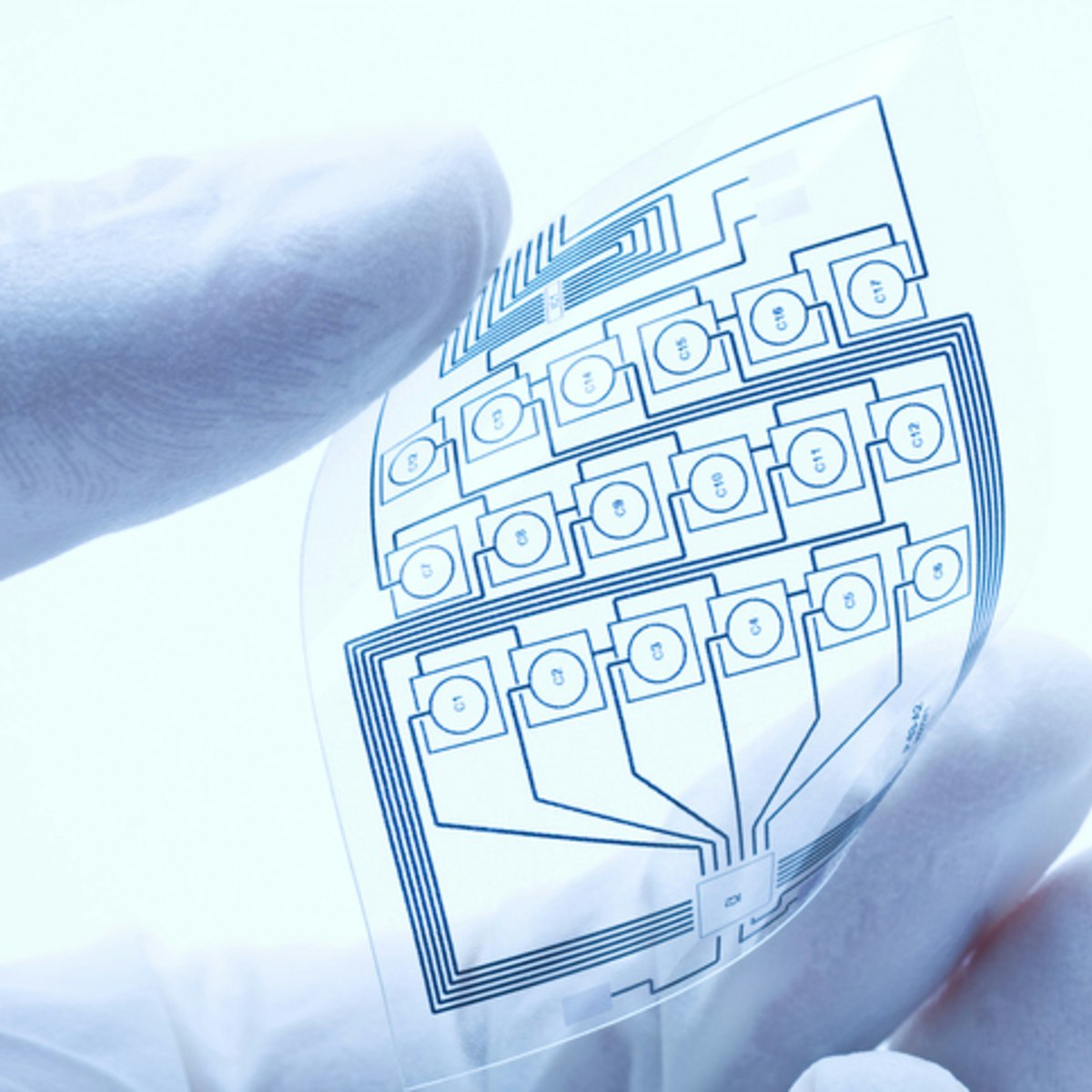Nanotechnologist
A Career as a Nanotechnologist: Exploring the World of the Small
Nanotechnology is the science, engineering, and technology conducted at the nanoscale, which is about 1 to 100 nanometers. To put that in perspective, a single human hair is about 80,000 to 100,000 nanometers wide. A nanotechnologist, therefore, is a professional who studies and manipulates matter at this incredibly small scale—the atomic and molecular level. They work across diverse fields like physics, chemistry, biology, materials science, and engineering to design, develop, and apply materials, devices, and systems with novel properties arising from their nanoscale dimensions.
Working as a nanotechnologist offers the chance to be at the forefront of scientific discovery and technological innovation. Imagine creating materials hundreds of times stronger than steel but lighter, developing targeted drug delivery systems that seek out cancer cells while sparing healthy tissue, or designing vastly more efficient solar cells and computer chips. The field is inherently interdisciplinary, meaning you'll often collaborate with experts from various backgrounds to tackle complex challenges and unlock solutions to pressing global issues in medicine, energy, electronics, and environmental science.
Introduction to Nanotechnologist
What is Nanotechnology?
Nanotechnology involves understanding and controlling matter at the dimensions of atoms and molecules. At this scale, the fundamental properties of materials—like their conductivity, strength, reactivity, and optical characteristics—can change dramatically compared to their larger, bulk forms. For example, gold, which is typically yellow and inert, can appear red or act as a potent catalyst when in nanoparticle form.
This field is not confined to a single discipline; it's a convergence of physics, chemistry, biology, materials science, and engineering. Nanotechnologists leverage principles from all these areas to create new structures, devices, and systems. The ability to precisely arrange atoms and molecules opens doors to unprecedented functionalities and applications across nearly every industry.
From improving the efficiency of renewable energy sources to creating new diagnostic tools for diseases, nanotechnology is driving innovation. It represents a fundamental shift in how we approach materials design and problem-solving, working from the bottom up, molecule by molecule.
Core Responsibilities
A nanotechnologist's primary role involves research and development. This typically includes designing and conducting experiments to investigate phenomena at the nanoscale. They synthesize and characterize nanomaterials, testing their properties using advanced tools like electron microscopes and atomic force microscopes.
They analyze experimental data, often using computational modeling, to understand the behavior of nanoscale systems and develop theories. Based on these findings, they work on practical applications, which could mean developing new materials, designing miniature devices, or improving existing products and processes.
Collaboration is key in this interdisciplinary field. Nanotechnologists frequently work in teams with other scientists and engineers. Communicating findings through reports, scientific papers, and presentations is also a crucial part of the job, as is adhering to strict safety protocols, especially when handling potentially hazardous nanomaterials.
A Brief History
The conceptual seeds of nanotechnology were planted by physicist Richard Feynman in his 1959 talk, "There's Plenty of Room at the Bottom," where he envisioned manipulating individual atoms and molecules. However, the term "nanotechnology" was coined later by Norio Taniguchi in 1974 to describe precision manufacturing processes.
The invention of instruments like the scanning tunneling microscope (STM) in the early 1980s provided scientists with the tools needed to both observe and manipulate matter at the atomic level, turning Feynman's vision into a tangible reality. This breakthrough spurred rapid advancements in the field.
Governments worldwide recognized the transformative potential of nanotechnology, leading to initiatives like the U.S. National Nanotechnology Initiative (NNI), established in 2001. The NNI coordinates federal research and development efforts, aiming to advance discovery and translate nanoscale science into societal benefits.
Impact on Industries and Research
Nanotechnology is already making a significant impact across numerous sectors. In medicine (often called nanomedicine), it's enabling targeted drug delivery systems, advanced diagnostic tools, and new therapies for diseases like cancer. Nanoparticles are being used to improve medical imaging and regenerative medicine techniques.
In electronics, nanotechnology drives the miniaturization of components, leading to faster, more powerful computers and mobile devices. Materials like carbon nanotubes and graphene promise flexible displays and more efficient semiconductors. The energy sector benefits from nanomaterials used in more efficient solar cells, higher-capacity batteries, and improved fuel cells.
Beyond these, nanotechnology improves consumer products, from lightweight, durable materials in sports equipment and vehicles to stain-resistant fabrics and more effective sunscreens. It also offers solutions for environmental remediation, such as filters for clean water and catalysts to break down pollutants. Research continues to push the boundaries, exploring applications in areas like quantum computing and artificial intelligence.
Key Responsibilities of a Nanotechnologist
Designing and Synthesizing Nanomaterials
A core function of nanotechnologists is the creation of materials with specific properties at the nanoscale. This involves designing structures atom by atom or molecule by molecule. They use various chemical and physical methods to synthesize nanoparticles, nanotubes, nanowires, and thin films.
Techniques might include chemical vapor deposition, molecular beam epitaxy, sol-gel synthesis, or self-assembly processes where molecules are designed to spontaneously organize into desired structures. The goal is to control the size, shape, composition, and surface characteristics of the nanomaterials precisely.
This design and synthesis process requires a deep understanding of chemistry, physics, and materials science. Nanotechnologists must predict how atomic arrangements will influence macroscopic properties and then devise reliable methods to produce these structures consistently.
Applying Nanoscale Principles
Beyond creating new materials, nanotechnologists apply their understanding of nanoscale phenomena to develop new products or improve existing ones. This could involve integrating nanomaterials into composites to enhance strength or conductivity, designing nanoscale sensors for detecting specific molecules, or creating nanoelectronic components for smaller, faster devices.
This responsibility requires translating fundamental scientific discoveries into practical applications. Nanotechnologists work on bridging the gap between laboratory research and industrial manufacturing. They might develop prototypes, test device performance, and optimize designs for scalability and cost-effectiveness.
Understanding structure-property relationships at the nanoscale is crucial. They need to know how quantum effects, surface area dominance, and other nanoscale characteristics influence material behavior and how these can be harnessed for specific technological goals in fields ranging from medicine to aerospace.
Cross-Disciplinary Collaboration
Nanotechnology is inherently interdisciplinary, requiring collaboration across traditional scientific boundaries. Nanotechnologists rarely work in isolation; they are often part of teams that include chemists, physicists, biologists, engineers, and medical researchers.
Effective communication and teamwork are essential. They must be able to explain complex concepts to colleagues from different backgrounds and integrate knowledge from various fields to solve multifaceted problems. This collaborative environment fosters innovation and accelerates progress.
Whether working in academic research labs, government agencies, or private industry, the ability to collaborate effectively is paramount. Projects often involve partners from different institutions or even different countries, requiring strong organizational and interpersonal skills.
Quality Control and Safety
Ensuring the quality and consistency of nanomaterials and nanodevices is critical. Nanotechnologists employ sophisticated characterization techniques, such as electron microscopy, spectroscopy, and X-ray diffraction, to verify the structure, composition, and properties of their creations.
They develop and implement quality control procedures to ensure reproducibility in synthesis and fabrication processes. This attention to detail is vital for both research reliability and the successful commercialization of nanotechnology products.
Safety is a major consideration. Working with nanomaterials presents unique potential hazards, as their properties can differ significantly from bulk materials. Nanotechnologists must adhere to strict safety protocols, manage hazardous substances appropriately, assess potential environmental and health risks, and contribute to developing best practices for handling nanomaterials safely. This includes understanding and complying with relevant regulations, although specific regulations for nanomaterials are still evolving.
Formal Education Pathways
Pre-University Preparation
A strong foundation in science and mathematics during high school is essential for aspiring nanotechnologists. Focus on courses in physics, chemistry, biology, and advanced mathematics like calculus. These subjects provide the fundamental knowledge needed for university-level studies in nanoscience.
Developing strong analytical and problem-solving skills is equally important. Engaging in science clubs, participating in science fairs, or taking computer science courses can also be beneficial. Familiarity with laboratory work and basic programming can provide a valuable head start.
Aim for high academic achievement, as entry into relevant university programs can be competitive. Demonstrating curiosity and a passion for science and technology through extracurricular activities will also strengthen your profile.
Undergraduate Degrees
There isn't typically a single "nanotechnology" undergraduate degree. Instead, students usually pursue a Bachelor of Science (B.S.) in a foundational field such as Materials Science, Physics, Chemistry, Biology (especially molecular biology), or various Engineering disciplines (like chemical, electrical, biomedical, or mechanical engineering).
Within these programs, look for opportunities to take elective courses or specialize in areas related to nanotechnology, condensed matter physics, quantum mechanics, organic/inorganic chemistry, molecular biology, or microfabrication. Some universities may offer specific nanotechnology minors or concentrations.
Practical laboratory experience is crucial. Seek out research opportunities with professors working on nanoscale projects, participate in internships, or engage in co-op programs. This hands-on experience complements coursework and is highly valued by graduate schools and employers.
These foundational courses provide the core scientific principles needed for nanotechnology.
These books offer deep dives into essential chemistry concepts relevant to nanotechnology.
Graduate Programs and Research
For many research and development roles, particularly in academia or advanced industrial R&D, a graduate degree (Master's or Ph.D.) is often required. Master's programs (M.S.) might offer specialized tracks in nanotechnology or nanoscience, providing more focused coursework and research experience.
A Doctor of Philosophy (Ph.D.) is typically necessary for leading independent research projects or holding senior scientific positions. Ph.D. programs involve intensive research in a specific area of nanotechnology, culminating in a dissertation. Specializations can range widely, including nanoelectronics, nanomedicine, nanophotonics, nanomaterials synthesis, or computational nanotechnology.
Choosing a graduate program involves finding researchers whose work aligns with your interests. Funding for graduate studies, especially Ph.D. programs, is often available through research assistantships, teaching assistantships, fellowships, or government grants.
Consider these courses for delving deeper into the quantum realm and thermodynamics, crucial for understanding nanoscale behavior.
Certifications and Licensure
Currently, there are generally no specific mandatory licensure or certification requirements to work as a nanotechnologist, unlike professions such as medicine or certain engineering fields that require professional engineering (PE) licenses.
However, some specialized roles, particularly those involving specific equipment or techniques (like operating in cleanroom environments or handling certain hazardous materials), may require specific training certificates. Employers or research institutions typically provide this training.
Professional organizations related to chemistry, physics, materials science, or engineering might offer voluntary certifications or credentials that could enhance a resume, but these are not usually prerequisites for employment in the field.
Online and Independent Learning
Core Topics for Self-Study
For those supplementing formal education or transitioning into nanotechnology, online resources offer valuable learning opportunities. Key subjects to focus on include quantum mechanics (essential for understanding nanoscale behavior), solid-state physics, materials science, thermodynamics, organic and inorganic chemistry, and molecular biology.
Depending on your area of interest, topics like micro/nanofabrication techniques, semiconductor physics, surface science, microscopy (electron microscopy, atomic force microscopy), spectroscopy, and computational modeling are also highly relevant. Understanding the principles behind these techniques is fundamental.
Online courses, available through platforms searchable on OpenCourser, cover many of these foundational and specialized topics. OpenCourser allows you to search through thousands of courses and books, compare syllabi, and read reviews to find resources matching your learning goals.
These online courses offer introductions to nanotechnology principles and fabrication techniques.
These books provide foundational knowledge in specific areas like photonics and crystallography.
Project-Based Learning
Theoretical knowledge is essential, but practical application solidifies understanding. Engaging in project-based learning, even independently, can significantly enhance your skills. This could involve simulating nanoscale phenomena using computational tools, analyzing published experimental data, or even building simple models or devices if resources permit.
Online courses often include projects or assignments that provide hands-on experience with software or data analysis relevant to nanotechnology. Contributing to open-source scientific software projects or participating in online data science competitions related to materials science can also be valuable.
Consider designing a conceptual experiment or device based on principles learned, outlining the steps, potential challenges, and expected outcomes. Documenting these projects can create a portfolio demonstrating your initiative and understanding to potential employers or academic programs.
Integrating Online Learning with Formal Education
Online courses are excellent tools for students currently enrolled in formal degree programs. They can be used to supplement required coursework, explore specialized topics not offered at your institution, or gain proficiency in specific software or analytical techniques.
If you find a particular area challenging, an online course might offer a different teaching style or perspective that clarifies the concepts. Conversely, if you wish to delve deeper into a subject beyond the scope of your classes, online resources provide advanced material.
Professionals already working in related fields can use online learning for continuous professional development, staying updated on the latest advancements in nanotechnology, or acquiring new skills needed for career progression or a potential pivot into a nanotech-focused role. OpenCourser's Learner's Guide offers tips on creating a structured curriculum for self-learning.
Limitations of Online Learning
While online courses offer tremendous flexibility and access to knowledge, they have limitations, particularly regarding hands-on laboratory skills. Nanotechnology heavily relies on experimental work using sophisticated and expensive equipment typically found only in university or industrial labs.
Operating electron microscopes, performing nanofabrication in cleanrooms, or synthesizing materials chemically requires direct, physical experience that online platforms cannot fully replicate. Virtual labs and simulations can provide some insight but are not substitutes for real-world lab work.
Therefore, while online learning is invaluable for building theoretical foundations and computational skills, aspiring nanotechnologists must seek opportunities for hands-on laboratory experience through formal education, internships, or research assistant positions to become fully proficient practitioners.
Career Progression and Opportunities
Entry-Level Roles
With a bachelor's degree in a relevant science or engineering field, individuals might find entry-level positions such as research assistant, laboratory technician, or process technician. These roles often involve supporting senior scientists and engineers in experiments, operating equipment, collecting data, and maintaining lab operations.
Duties could include preparing samples, running standard characterization tests, documenting procedures, and ensuring safety protocols are followed. While these roles provide valuable hands-on experience, progression opportunities without an advanced degree might be limited, particularly in R&D-focused environments.
Some companies or research institutions may offer pathways for technicians to pursue further education, potentially part-time, while working. An associate's degree or technical certificate in nanotechnology might also qualify individuals for certain technician roles, especially in manufacturing settings.
Mid-Career Specializations
With experience and often an advanced degree (Master's or Ph.D.), nanotechnologists can specialize in specific application areas. Common specializations include nanomedicine (drug delivery, diagnostics), nanoelectronics (semiconductors, sensors), nanomaterials (composites, coatings), nanophotonics (optics, lasers), or energy applications (solar cells, batteries).
Mid-career professionals typically take on more responsibility, leading specific research projects, designing complex experiments, interpreting intricate data, mentoring junior staff, and contributing to publications or patent applications. They develop deep expertise within their chosen niche.
Roles might include Research Scientist, Development Engineer, Process Engineer, or Project Manager. Continued learning and staying abreast of rapid advancements in the field are crucial for success and growth at this stage.
These related engineering fields often intersect with nanotechnology.
Leadership Roles
Experienced nanotechnologists with a strong track record of innovation and leadership (often requiring a Ph.D.) can advance to senior roles. In industry, this could mean managing entire research groups, directing R&D strategy, overseeing technology transfer to manufacturing, or taking on executive leadership positions.
In academia, progression leads to positions like Principal Investigator (leading a research lab and securing funding), Professor (combining research with teaching and mentoring students), or administrative roles such as Department Head or Dean. Establishing a strong publication record and securing research grants are key to academic advancement.
Leadership roles require not only deep technical expertise but also strong management, communication, strategic planning, and budgeting skills. These individuals often shape the direction of research and technological development within their organizations or institutions.
Global Job Market Trends
The field of nanotechnology is dynamic and growing globally, driven by its potential to revolutionize numerous industries. According to Precedence Research, the global nanotechnology market was valued around USD 6.59 billion in 2024 and is projected to grow significantly, potentially reaching USD 115.41 billion by 2034, indicating strong demand for skilled professionals. Job growth is anticipated across various sectors, including healthcare, electronics, energy, materials science, and manufacturing.
The U.S. Bureau of Labor Statistics (BLS) doesn't track "Nanotechnologist" as a distinct occupation but includes relevant roles within broader categories like Chemists and Materials Scientists. This group is projected to grow 8% from 2023 to 2033, faster than the average for all occupations, driven partly by nanotechnology advancements. Opportunities exist in universities, government labs (like those supported by the DOE or NIH), large corporations, and increasingly, in smaller startups focused on specific nanotech applications.
Salaries vary based on education, experience, sector (academia vs. industry), and location. Entry-level positions might start around $35,000-$60,000, while experienced Ph.D. holders in industry can earn well over $100,000, with senior researchers and managers potentially earning significantly more. For instance, ZipRecruiter suggests an average annual pay for a Nanotechnology Engineer in the U.S. around $95,023 as of early 2025, while CareerExplorer estimates $120,442, highlighting variability. The field remains competitive, particularly for top research positions, emphasizing the importance of strong qualifications and practical experience.
Industry Applications of Nanotechnology
Healthcare Applications
Nanomedicine is one of the most impactful areas of nanotechnology. Nanoparticles are being developed as advanced drug delivery systems, capable of targeting specific cells (like cancer cells) to deliver therapeutic agents more effectively and with fewer side effects than traditional chemotherapy. Nano-scale contrast agents are also improving the resolution and capabilities of medical imaging techniques like MRI.
Nanosensors offer the potential for early disease detection by identifying biomarkers at extremely low concentrations in blood or other bodily fluids. Research is also underway in tissue engineering, using nanostructured scaffolds to guide cell growth for repairing or regenerating bone, nerve, and other tissues.
Antimicrobial nanoparticles (like silver nanoparticles) are being incorporated into wound dressings and medical device coatings to prevent infections. The precise control offered by nanotechnology opens new avenues for personalized medicine and more effective treatments.
These courses delve into the biological and chemical aspects relevant to nanomedicine.
This book explores the specific use of metal nanoparticles in a biological context.
Energy Applications
Nanotechnology offers promising solutions for cleaner and more efficient energy production and storage. Nanomaterials are being used to enhance the efficiency of solar cells by improving light absorption and charge separation. Quantum dots and nanowires are key components in next-generation photovoltaic devices.
In energy storage, nanotechnology contributes to developing batteries with higher energy density, faster charging times, and longer lifespans. Nanostructured materials increase the surface area of electrodes in batteries and supercapacitors, boosting performance. Research also focuses on using nanomaterials as catalysts for more efficient fuel cells and for producing hydrogen fuel.
Nanotechnology can also improve energy efficiency through lightweight, strong materials for transportation (reducing fuel consumption) and better insulation materials for buildings. Nano-enabled catalysts can make industrial processes more energy-efficient.
These courses touch upon electronics and energy storage, areas where nanotechnology plays a vital role.
This book focuses on advanced energy storage devices, a key application area for nanotechnology.
Electronics and Computing
Nanotechnology is fundamental to the continued miniaturization and performance improvement of electronic devices. Transistors, the building blocks of computer chips, are now routinely manufactured with features measured in nanometers. Researchers are exploring new nanomaterials like carbon nanotubes and graphene for faster, more energy-efficient transistors and interconnects.
Nanoscale materials enable higher density data storage in hard drives and memory chips. Quantum dots, which are semiconductor nanocrystals, are used in high-quality displays (QLED TVs) known for their vibrant colors and energy efficiency. Nanotechnology also underpins developments in flexible electronics, transparent conductive films, and advanced sensors.
Emerging areas include nanoelectromechanical systems (NEMS) and explorations into quantum computing, where manipulating matter at the nanoscale is essential for creating qubits, the fundamental units of quantum information.
Explore the semiconductor and electronics side with these courses.
Environmental Remediation
Nanotechnology provides innovative tools for monitoring and cleaning up environmental pollution. Nanosensors can detect contaminants like heavy metals or organic pollutants in water and air at very low levels, enabling rapid response to environmental hazards.
Nanomaterials can act as highly efficient catalysts or adsorbents for removing pollutants. For example, iron nanoparticles can be used to neutralize certain groundwater contaminants, while nanostructured membranes offer more effective water purification and desalination.
Nanocatalysts are also being developed to make industrial processes greener by reducing waste and energy consumption. Research explores using nanotechnology to capture carbon dioxide emissions or convert waste products into valuable materials, contributing to a more sustainable future.
Ethical and Safety Considerations
Environmental Impact
While nanotechnology offers environmental benefits like pollution remediation, the potential environmental impact of manufactured nanomaterials themselves requires careful consideration. Due to their small size and novel properties, nanoparticles might behave differently in ecosystems compared to bulk materials.
Concerns exist about the potential persistence, bioaccumulation, and toxicity of certain nanomaterials if released into the air, water, or soil. Assessing the full life cycle of nano-enabled products, from manufacturing to disposal, is crucial to understand and mitigate potential environmental risks.
Ongoing research aims to understand how different nanomaterials interact with environmental systems and to develop greener synthesis methods and biodegradable nanomaterials to minimize adverse effects. Responsible development necessitates proactive environmental risk assessment.
Health Risks
The potential health risks associated with exposure to nanomaterials, particularly for workers in nanotechnology industries, are an area of active research and ethical concern. Because of their small size, nanoparticles can potentially be inhaled or absorbed through the skin, and some may cross biological barriers like the blood-brain barrier.
The long-term health effects of exposure to various types of nanomaterials are not yet fully understood. Research focuses on nanotoxicology—studying how nanoparticles interact with biological systems and identifying potential hazards. Establishing safe exposure limits and effective control measures is a priority.
Employers have an ethical responsibility to implement appropriate safety measures, such as engineering controls (e.g., ventilation, containment) and personal protective equipment (PPE), even in the absence of specific regulations. Transparent communication about potential risks with workers is also vital.
Regulatory Frameworks
Developing appropriate regulatory frameworks for nanotechnology presents challenges due to the field's rapid evolution and the diverse nature of nanomaterials. Currently, few regulations specifically target nanomaterials; they often fall under existing chemical or product safety regulations like the Toxic Substances Control Act (TSCA) in the US.
Agencies like the Environmental Protection Agency (EPA), the Food and Drug Administration (FDA), and the Occupational Safety and Health Administration (OSHA) are actively working to understand and address the unique aspects of nanotechnology. However, keeping pace with innovation is difficult.
There is ongoing debate about whether new, nano-specific regulations are needed or if existing frameworks can be adapted. International collaboration is also important for harmonizing regulatory approaches globally. Ensuring responsible innovation requires a proactive and adaptive regulatory environment.
Public Perception and Ethical Dilemmas
Public perception significantly influences the acceptance and development of nanotechnology. Transparent communication about both the benefits and potential risks is essential to build public trust. Exaggerated claims or fear-mongering can hinder responsible progress.
Ethical dilemmas arise concerning issues like privacy (e.g., nano-surveillance), equity (access to nanotech benefits), potential military applications, and broader societal transformations. Questions about human enhancement or the unforeseen consequences of powerful molecular manufacturing technologies ("gray goo" scenarios, though often considered highly speculative) also surface in ethical discussions.
Engaging the public, policymakers, ethicists, and scientists in open dialogue about these issues is crucial. Addressing societal concerns proactively and embedding ethical considerations into the research and development process are key to navigating the future of nanotechnology responsibly. Resources like the Markkula Center for Applied Ethics explore these dimensions.
Skills and Competencies for Nanotechnologists
Technical Skills
A strong foundation in core scientific principles (physics, chemistry, biology) is paramount. Specific technical skills often include proficiency in operating and interpreting data from advanced characterization tools like scanning electron microscopes (SEM), transmission electron microscopes (TEM), atomic force microscopes (AFM), and various spectroscopy techniques (e.g., Raman, FTIR, XPS).
Expertise in synthesis and fabrication techniques is also crucial. This might involve chemical synthesis methods, thin-film deposition techniques (like sputtering or chemical vapor deposition), photolithography, or self-assembly processes. Familiarity with cleanroom protocols is often necessary.
Depending on the specialization, skills in areas like cell culture, genetic engineering, electrochemistry, or optics might be required. Hands-on laboratory proficiency is a non-negotiable requirement for most experimental roles.
These courses cover techniques like microscopy and approximation methods used in modeling.
These books delve into crystallography and sensor technology.
Analytical and Computational Abilities
Nanotechnologists must possess strong analytical skills to interpret complex experimental data, identify trends, and draw meaningful conclusions. This involves critical thinking, logical reasoning, and a quantitative approach to problem-solving.
Computational skills are increasingly important. Familiarity with data analysis software, statistical methods, and scientific programming languages (like Python or MATLAB) is often beneficial. Many nanotechnologists use computational modeling and simulation tools (e.g., molecular dynamics, density functional theory) to predict material properties or design experiments.
The ability to integrate theoretical knowledge with experimental results is key. This involves developing models to explain observations and using simulations to guide experimental design.
This course introduces computational approaches in materials design.
Soft Skills
Technical expertise alone is not sufficient. Nanotechnologists need strong communication skills—both written and verbal—to present research findings, write reports and papers, apply for grants, and collaborate effectively with colleagues from diverse backgrounds.
Teamwork and collaboration are essential due to the interdisciplinary nature of the field. Problem-solving skills, persistence, and attention to detail are critical for overcoming experimental challenges and ensuring accuracy.
Project management skills, including planning, organizing, and time management, become increasingly important as careers progress. The ability to think creatively and innovatively is also highly valued.
Adaptability
Nanotechnology is a rapidly evolving field with constant new discoveries and technological advancements. Nanotechnologists must be adaptable and committed to lifelong learning to stay current with the latest research, techniques, and tools.
This requires regularly reading scientific literature, attending conferences, participating in workshops, and potentially taking additional courses throughout one's career. Flexibility in approach and a willingness to learn new skills are essential for navigating this dynamic landscape.
Being open to exploring new research directions or applying expertise to different application areas can also open up new career opportunities in this ever-changing field.
Future Trends and Challenges
Emerging Subfields
Nanotechnology continues to branch into new and exciting areas. DNA nanotechnology, for example, uses the programmable self-assembly properties of DNA to create intricate nanoscale structures and devices. Molecular nanotechnology aims to build complex machines atom by atom.
Other growing areas include nano-robotics (developing tiny robots for tasks like targeted drug delivery or environmental cleanup), advanced nanosensors for real-time monitoring, quantum nanotechnology (leveraging quantum effects for computing and sensing), and green nanotechnology (focusing on sustainable and environmentally friendly nano-processes and products).
These emerging subfields promise further breakthroughs but also bring new scientific and engineering challenges. Staying aware of these trends is important for long-term career planning.
Scalability and Manufacturing
A major challenge for nanotechnology is scaling up laboratory discoveries into viable, cost-effective industrial manufacturing processes. Techniques that work well for producing small quantities of nanomaterials in a lab may not be easily adaptable for mass production.
Ensuring consistent quality control and reproducibility at large scales is difficult. Developing reliable, high-throughput manufacturing methods for nanomaterials and nano-enabled devices is crucial for widespread adoption and commercial success.
Overcoming these manufacturing hurdles requires innovation in process engineering, metrology (measurement science at the nanoscale), and automation. Collaboration between researchers and industry is key to translating nano-innovations from the lab to the market.
This course provides insights into high-throughput methods relevant to scaling.
Funding and Commercialization
Securing funding for nanotechnology research and development can be competitive. While government initiatives provide significant support, researchers constantly compete for grants. Venture capital funding is crucial for startups aiming to commercialize nanotechnologies, but the long development timelines and technical risks can sometimes deter investors.
Bridging the "valley of death"—the gap between promising research results and a commercially viable product—remains a challenge. Intellectual property protection through patents is vital but navigating the patent landscape can be complex.
Successful commercialization requires not only technical breakthroughs but also sound business strategies, market understanding, and addressing regulatory hurdles and public perception.
Interdisciplinary Collaboration Trends
The future of nanotechnology will likely see even greater emphasis on interdisciplinary collaboration. Solving complex global challenges, such as climate change, sustainable energy, and personalized healthcare, requires integrating expertise from multiple fields.
Convergence between nanotechnology, biotechnology, information technology, and cognitive science (NBIC convergence) is expected to drive major innovations. Teams will increasingly include experts not only from traditional STEM fields but also from areas like data science, artificial intelligence, ethics, and social sciences.
Fostering environments that support and encourage cross-disciplinary communication and teamwork will be essential for accelerating progress and ensuring that nanotechnology develops in a way that benefits society responsibly.
Frequently Asked Questions
Is a PhD required to work as a nanotechnologist?
Not necessarily, but it depends heavily on the specific role and career path. For independent research positions in academia or advanced R&D roles in industry, a PhD is typically required. These positions demand deep expertise and the ability to lead original research projects.
However, valuable careers exist for individuals with Bachelor's or Master's degrees. Roles like research assistant, laboratory technician, process engineer, or quality control specialist often require these degrees. These positions focus more on executing experiments, operating equipment, and supporting research teams.
An Associate's degree or technical certificate might qualify individuals for technician roles, particularly in manufacturing or quality assurance settings. While a PhD opens more doors, especially in research, meaningful contributions can be made at various educational levels.
What industries hire the most nanotechnologists?
Nanotechnologists find employment across a wide range of industries due to the field's broad applicability. Key sectors include electronics and semiconductors (developing smaller, faster components), materials science (creating advanced materials with enhanced properties), and biotechnology/pharmaceuticals (nanomedicine, diagnostics).
Other significant employers are in the energy sector (solar cells, batteries, catalysts), chemical manufacturing, automotive and aerospace (lightweight materials, sensors), and environmental science (remediation, monitoring). Government laboratories and universities are also major employers of nanotechnology researchers.
Emerging opportunities also exist in areas like cosmetics, food science (packaging, sensors), textiles, and computing. The versatility of nanotechnology means career opportunities span both established industries and cutting-edge startups.
How competitive is the job market?
The job market for nanotechnologists is generally considered positive, with growth expected as the technology finds more applications. However, competitiveness varies by role and specialization. Positions requiring a PhD, especially in academia or top industrial research labs, are often highly competitive, demanding strong academic records, publication history, and specialized skills.
For roles requiring Bachelor's or Master's degrees, the market may be less intensely competitive but still requires solid qualifications and relevant experience (like internships or lab work). Geographic location also plays a role, with R&D hubs typically having more opportunities.
Overall, while demand exists, standing out requires a strong educational foundation, practical skills, and often, specialization in a high-demand area. Networking and gaining hands-on experience during education are beneficial.
Can nanotechnology careers transition to adjacent fields?
Yes, the interdisciplinary nature of nanotechnology provides a strong foundation for transitioning into related fields. The skills acquired—such as materials characterization, process development, data analysis, and working across scientific disciplines—are transferable.
A nanotechnologist specializing in nanomaterials might move into broader materials science roles. Someone focused on nanoelectronics could transition into semiconductor engineering or device physics. Expertise in nanomedicine could lead to careers in biotechnology, pharmaceuticals, or biomedical engineering.
Additionally, skills in project management, technical communication, and data analysis can open doors to roles in technical consulting, patent law (with further legal training), science policy, technical sales, or management within technology companies.
What are the typical workplace settings?
Workplace settings vary depending on the employer and specific role. Many nanotechnologists work in laboratories, conducting experiments and using specialized equipment. This can be in universities, government research institutions (like national labs), or industrial R&D facilities.
Some roles might involve working in cleanroom environments, which require wearing specialized protective clothing and adhering to strict protocols to prevent contamination. Others might focus more on computational work, involving simulations and data analysis performed in an office setting.
Those involved in manufacturing or process development might spend time in pilot plants or production facilities. Collaboration often means time spent in meetings, writing reports, or presenting findings, blending lab work with office-based tasks.
How does nanotechnology impact global sustainability?
Nanotechnology holds significant potential to contribute to global sustainability goals. It can lead to more efficient energy generation (e.g., improved solar cells) and storage (e.g., better batteries), reducing reliance on fossil fuels. Lightweight nanomaterials can decrease fuel consumption in transportation.
In environmental protection, nanotechnology offers tools for detecting and removing pollutants from water and air. Nanocatalysts can make industrial processes cleaner and more resource-efficient. Nano-enabled sensors can help monitor environmental conditions more effectively.
However, realizing these benefits requires careful consideration of the environmental footprint of nanomaterial production and disposal itself. Green nanotechnology approaches aim to develop sustainable processes and materials to ensure the field contributes positively to long-term environmental health.
Conclusion
Embarking on a career as a nanotechnologist means entering a field that operates at the very building blocks of matter, offering immense potential for discovery and innovation. It's a path demanding rigorous scientific training, meticulous attention to detail, and a collaborative spirit. You will work at the intersection of physics, chemistry, biology, and engineering, tackling challenges that could reshape industries from medicine to energy.
The journey requires significant dedication, often involving advanced education and continuous learning in a rapidly evolving landscape. While the path can be demanding, the rewards lie in contributing to cutting-edge advancements and potentially developing solutions to some of the world's most pressing problems. Whether you aim for a research-intensive role requiring a PhD or a technical position applying nano-principles in industry, the world of the small holds vast opportunities for those ready to explore it.






